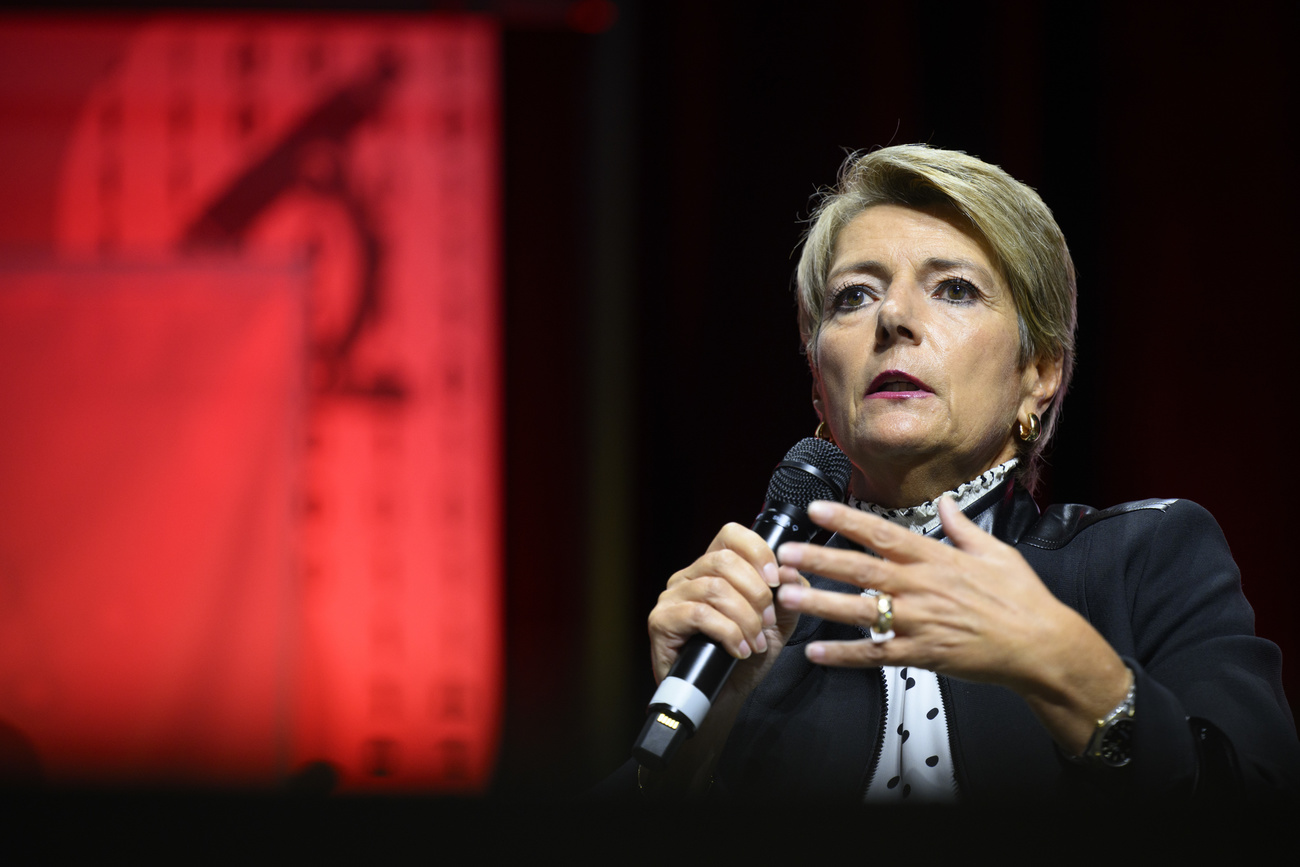
Justice minister seeks to clarify legal status for Ukrainian refugees

Justice Minister Karin Keller-Sutter says there is no need to extend the special legal status for Ukrainian refugees in Switzerland.
If the Swiss government does not revoke it, the refugees could benefit from the protection for up to five years, before upgrading it to a B residence permit, she told the Le Temps newspaper in an interviewExternal link on Wednesday.
The so-called S status would only be revoked in case of a ceasefire or the deployment of international peacekeeping troops, she reiterated.
Keller-Sutter said she had asked the Swiss immigration authorities to prepare for such a case, adding this was not meant as a signal that the Ukrainian refugees would have to return soon.
She said the return of Ukrainians to their home country could take place in stages, similar to a procedure applied with refugees from Bosnia-Herzegovina in the 1990s.
“Back then, single adults had to return first, then families without children, then families with children,” she said.
There are currently about 70,000 refugees from Ukraine in Switzerland. The authorities expect the figure to rise further over the next three months.

In compliance with the JTI standards
More: SWI swissinfo.ch certified by the Journalism Trust Initiative


























You can find an overview of ongoing debates with our journalists here . Please join us!
If you want to start a conversation about a topic raised in this article or want to report factual errors, email us at english@swissinfo.ch.